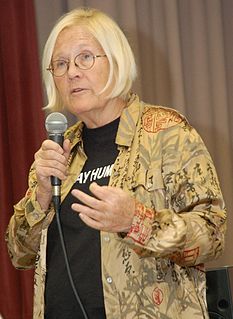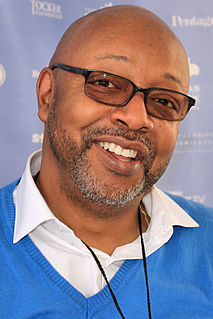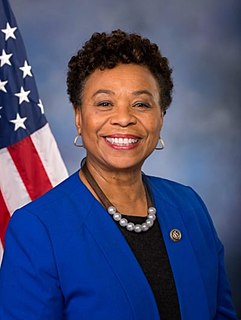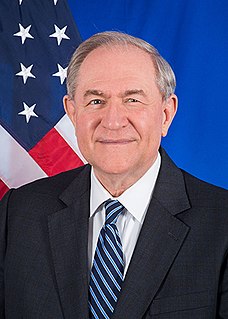A Quote by Ann Wright
As a 29 year veteran of the US Army/Army Reserves, retiring as a Colonel and having served as a U.S. diplomat for 16 years and resigning in 2003 in opposition to the Iraq war, I firmly believe war does not resolve political issues. We must work diligently to force the governments of our nations to use diplomacy, not weapons.
Related Quotes
It was Harry Patch, who was the last living World War I veteran; and by veteran I mean someone who actually fought in the war, he didn't just happen to be in the army at that time, in the Great War. And when the Iraq War started, he was interviewed, and they said, well what do you think of this? And he said, in a very sad voice, "Well, that's why my mates died. We thought we were going to end all that sort of thing."
As you know, you go to war with the army you have, not the army you might want or wish to have at a later time. Since the Iraq conflict began, the Army has been pressing ahead to produce the armor necessary at a rate that they believe - it's a greatly expanded rate from what existed previously, but a rate that they believe is the rate that is all that can be accomplished at this moment.
We fought a military war; our opponents fought a political one. We sought physical attrition; our opponents aimed for our psychological exhaustion. In the process we lost sight of one of the cardinal maxims of guerrilla war: the guerrilla wins if he does not lose. The conventional army loses if it does not win. The North Vietnamese used their armed forces the way a bull-fighter uses his cape to keep us lunging in areas of marginal political importance.
It is said by Bush men and women that we fought (the Iraq War) to strike against terrorism - except that Iraq had no documented role in the Sept. 11 attacks. It is said that we fought from a moral objection to tyranny - except that we don't seem all that troubled by tyrants in nations that lack huge oil reserves. Everything is said except the truth: that we rushed into an unnecessary war on a half-baked mission. And that the repercussions of our hubris will shadow us for years.
To have security against atomic bombs and against the other biological weapons, we have to prevent war, for if we cannot prevent war every nation will use every means that is at their disposal; and in spite of all promises they make, they will do it. At the same time, so long as war is not prevented, all the governments of the nations have to prepare for war, and if you have to prepare for war, then you are in a state where you cannot abolish war.
The invasion of Iraq will surely go down in history as one of the most cowardly wars ever fought. It was a war in which a band of rich nations, armed with enough nuclear weapons to destroy the world several times over, rounded on a poor nation, falsely accused it of having nuclear weapons, used the United Nations to force it to disarm, then invaded it, occupied it, and are now in the process of selling it.
I was an Army intelligence agent and a veteran during the Cold War, assigned to West Germany. I was the chairman of the National Commission on Homeland Security and Terrorism for the United States for five years. I was a person who has dealt extensively with these homeland security issues. I was a governor during the 9/11 attack.

































